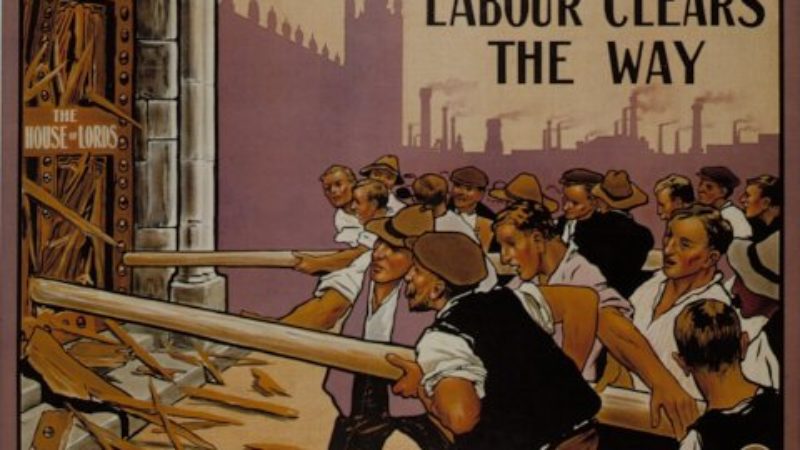
The Peerage Act of 1963, passed fifty years ago this week, was the first democratic challenge to the power and traditions of the House of Lords in modern times. It gave hereditary peers the right to disclaim their titles, and for women peers to sit in the Upper House of the British Parliament for the first time. Fifteen minutes after the act ascended into law, Tony Benn, then 2nd Viscount Stansgate and an active campaigner fighting for the right to relinquish his unwanted peerage, became a commoner once more; returning to the House of Commons in a by-election soon after.
The issue of the House of Lords has been one that has plagued the people of this country for as long as it has existed; the Upper House embodies unelected, unaccountable power, right at the heart of the legislature and executive. Handed out by patronage to a privileged few to whom the British people have absolutely no ability to get rid of from the legislature.
It is also an example of how unequal a society we live in, in which a minority of people hold power they were not given by a majority, to whom they are not accountable, yet have the ability to change the lives of without any authority but that of patronage to do – and get paid extreme amounts of public money to do so. The Lords is now almost wholly full of people from a business or political background, and is not representative of the people whatever, not that it ever was. The House of Lords is testament that feudalism still exists in modern Britain, and that real democracy does not.
If democracy is, as I believe it to be, a moral argument for equality – the idea that all men and women are made equal and thus each have a right to take control of their own destinies – then surely equality can not be achieved without democracy, and the first step to do so is to get rid of the House of Lords.
This is not a new idea, but a very old one, and in the best of British political tradition. So long as there have been democratic movements in Britain, there have been equality movements. The Peasants’ Revolt, the Levellers, the Diggers, the Chartists, and the Suffragettes were all movements fighting for equality in the form of democracy, and the Labour movement carries on that fight today.
The Labour movement has been in support of the abolition of the peerage for over a century, and so has the Labour Party for most of that time. Kier Hardie fought for it, the 1935 manifesto promised it, as did the 1983 manifesto, Tony Benn proposed it in the Commonwealth of Britain Bill in 1992, and I am proposing it again today.
If Labour is serious about equality, then it must be serious about democracy too; it must do, as the movement it represents has wanted to do for hundred years, and get rid of the House of Lords. There is no argument being made that by abolishing the peerage we can solve unemployment, or that by ending the Lords we will achieve world peace, nor that by abolishing it we will achieve full equality overnight – but we will finally be on the road of truly acquiring power for the many, and weakening that of the few.
If Ed Miliband truly believes in building One Nation, then the democratisation of Britain must be his top priority, and lets start by breaking the feudal grip over the legislature and having an elected House of the People which truly represents the interests of ordinary working people. As Gerrard Winstanley said, “”in the beginning of time God made the earth. Not one word was spoken at the beginning that one branch of mankind should rule over another.” It is time to make this happen, once and for all.




More from LabourList
Antonia Romeo appointed to lead civil service as new Cabinet Secretary
‘If Labour is serious about upskilling Britain, it must mobilise local businesses’
Stella Tsantekidou column: ‘What are we to make of the Labour Together scandal?’